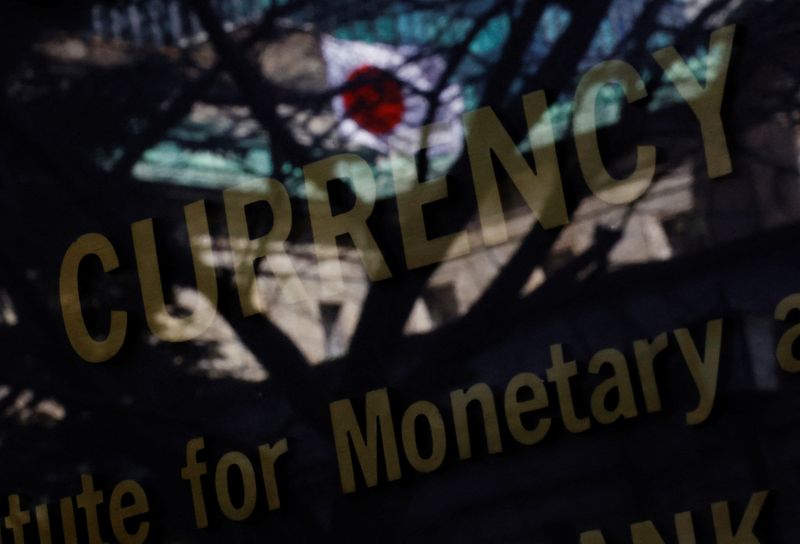By Leika Kihara
TOKYO (Reuters) -The Bank of Japan’s retreat from a decade-long radical stimulus is pressuring the government to rethink the way it funds its big spending packages with additional debt, a challenge made more daunting by political demands for permanent tax breaks.
Prime Minister Shigeru Ishiba’s administration plans to spend 13.9 trillion yen ($92 billion) for a package of steps to cushion the blow from rising living costs, which will be funded by this year’s supplementary budget to be finalised on Friday.
Ishiba’s ruling coalition is also seen swallowing opposition party demands for permanent tax breaks, which analysts say may slash next year’s tax revenues by up to 4 trillion yen.
Such steps would come in the wake of the BOJ’s exit from ultra-low interest rates, which increases the cost of funding Japan’s 1,100-trillion-yen debt pile – the biggest among advanced nations and nearly double the size of its economy.
Contrary to other advanced nations that had phased out pandemic-mode stimulus, Japan continues to compile big spending packages thanks in part to still-low interest rates.
But Japan can no longer rely on the BOJ to keep borrowing costs low as it ditched its yield cap in March, laid out a plan to taper bond purchases and signaled its resolve to keep hiking short-term rates from the current 0.25%.
Japan is expected to spend 27 trillion yen, or 24% of this year’s total budget, on debt-servicing costs. While the 10-year bond yield is well below the 2.1% the ministry used to craft this year’s budget, the cost could balloon if bond yields spike.
There is no sign the prospects of higher rates is leading to fiscal restraint. Total (EPA:TTEF) Japanese government bonds (JGB) issuance for the current fiscal year ending in March, estimated at 182 trillion yen, is down 6% from last year but may increase due to Ishiba’s spending package.
Analysts expect total bond issuance for next fiscal year to remain largely unchanged from this year’s, or increase depending on the size of tax breaks under negotiation among politicians.
CLOCK TICKING
The dilemma runs deep for the finance ministry, which oversees debt-issuance plans and must fill a huge hole left by the BOJ’s diminishing presence in the Japanese Government Bond market.
For one, the ministry must reduce issuance of super-long JGBs due to dwindling demand from life insurers. That heightens the importance of private banks to re-emerge as major buyers of JGBs, but luring them back won’t be easy.
As the BOJ’s heavy buying crushed yields, private banks now hold just 14% of the JGB market, down from 41% before the introduction of Kuroda’s stimulus in 2013. Tighter capital regulation has also made banks wary of ramping up bond buying.
“Given solid demand from banks, there were calls to increase issuance of medium- to long-term JGBs. There were also strong requests to boost issuance of treasury discount bills,” a finance ministry official told reporters after meeting with market participants on Tuesday, signaling readiness to sell debt with shorter maturity that are easier for banks to buy.
Issuing too many short-term bonds, however, would require Japan to roll over debt more frequently and make its finances vulnerable to bond market swings.
While the ministry is looking to attract more individual and overseas investors, they are unlikely to become big and stable enough holders to ensure smooth debt issuance, analysts say.
To be sure, Japan likely won’t face imminent trouble selling debt, with the benchmark 10-year JGB yield hovering around 1% and the central bank pledging to go slow in raising borrowing costs.
But the clock is ticking for Japan to get its fiscal house in order. A credit ratings downgrade in Japan’s sovereign debt could boost the cost of raising foreign funds for banks and firms, Kyohei Morita, chief economist at Nomura Securities, told a seminar on Tuesday.
“When we’re seeing changes in the way wages and inflation move in Japan, it’s wrong to assume there won’t be any change in the way interest rates behave,” he said.
($1 = 151.1700 yen)

































